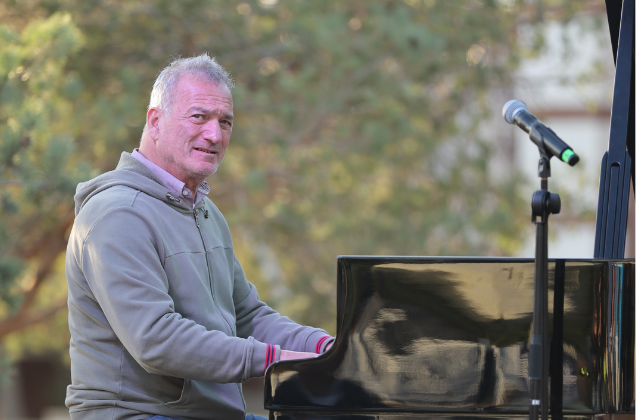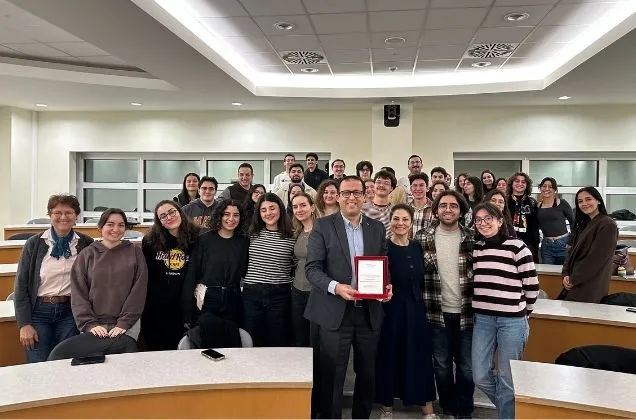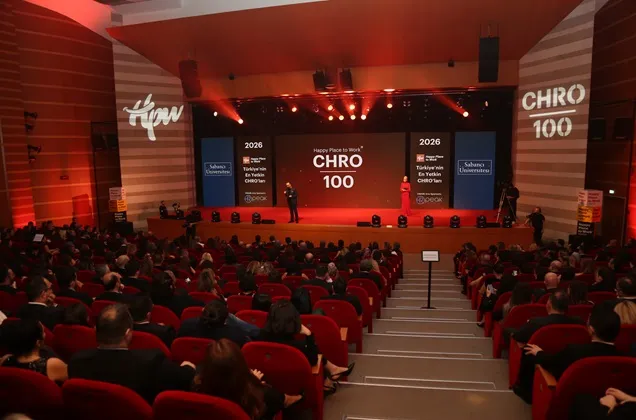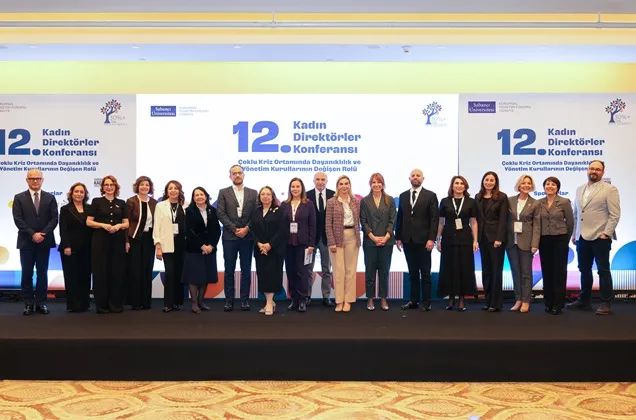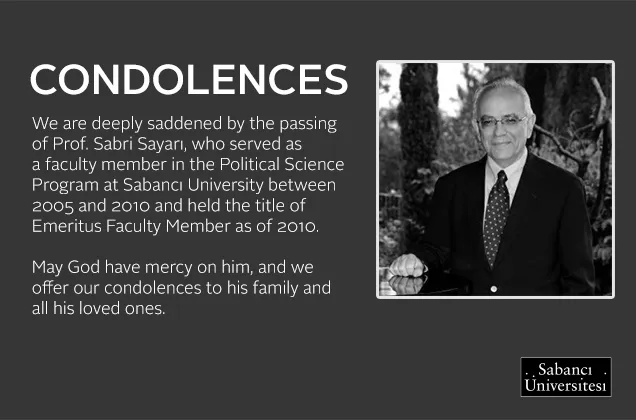14/10/2025
Sabancı University’s 2025 Alumni Meeting and “Make a Promise for the Future” event took place on September 27th on the Tuzla Campus. Following workshops, alumni stands, and special meetings during the day-long event, the Kerem Görsev Quartet took the stage. Görsev, a leading figure in Turkish jazz music, shared his musical journey, sources of inspiration, and his thoughts on the future of jazz with us before the concert.
– You’re a very productive person. Where do you get your motivation to sustain this productivity? Where do you find inspiration?
I don’t make a special effort to make an album. Life experiences, natural events, male-female relationships, my relationships with animals, the rhythm of the earth’s rotation… These are what drive me to write music. My first album was released in 1994, when I was 33. I’ve now released 22 albums and have written new music. I plan to go into the studio around December or January to record new music. The stories of long experiences and their hidden heroes stimulate you and make you write music.
– So, when are you usually most productive?
My "spawning season" is autumn and spring. Autumn is destruction, pastel colors, the falling of leaves, sadness... Spring is revival, the earth's rebirth. It's the same with animals. These periods stimulate me. For example, some of my album titles are Warm Autumn, I Love May, Spring Water, Clear Horizon... They all have a story.
Jazz music is the story of long experiences. Jazz music is a musical, a pantomime. We don't speak; we try to tell our story with the sounds of our fingers. It's a difficult task. I'm happy that there are people who understand what we're trying to tell.
– Can you give us a clue about what influences we'll see in the new album?
There are four hidden heroes in the new album.
– It's said that digitalization has greatly impacted the music industry. What's your approach?
I have no connection to it. I've always stayed acoustic. I've been playing the wooden piano since I entered the conservatory in 1967. In today's concert, we'll be playing acoustic music with double bass, drums, and piano. Nothing digital interests me. When the power goes out, electronic instruments stop, but the piano, drums, and double bass don't. We just keep playing.
I've never been interested in electronic music, never have. It's like this: would you be with someone you don't like? Someone you wouldn't share the same stories with? So I'm sharing my story with acoustic music.
I don't have a computer; I don't use one. I only have a cell phone. I still write notes on sheet music with a pencil. I'm a bit old-school.
– Due to digitalization, negative predictions are being made for the future of the music industry. Your opinion?
No! There are many successful people. But I think we should pursue what we sincerely feel in our lives so that we can strive for success. But no one in the world can achieve success. Success is always faster than us. We try to approach it with our work, but it still surpasses us. But in that struggle, we try to approach success. Success is more successful than us.
– We also see an increase in jazz festivals outside of Istanbul. What is your assessment of this?
Any jazz festival that isn't institutionalized shouldn't be considered a jazz festival. That's why festivals like the Istanbul Jazz Festival and the Akbank Jazz Festival have longevity. There are also festivals in Bozcaada, Eskişehir, İzmir, Antalya, Alanya, Denizli, and Ankara. These are positive developments. But the jazz audience in Türkiye is small—much smaller.
But the Green Party, for example, is a party that protects nature and humanity. Jazz is the same. Jazz is a Green Party. At the same time, jazz is a social democratic party. It values human rights. I wish there was such a jazz party so we could vote for it.
- In recent years, young people's interest in jazz music seems to be growing. What do you observe?
You reap what you sow. If jazz departments were opened at universities and supported with the international system, many things would change. In other words, a few universities in Türkiye had jazz departments, but they closed.
Of course, these things are different; for example, opening a jazz education program. My dream has always been this: a jazz university would have a jazz department, but not always with the same teachers. Like in America, teachers would change every semester or every six months. Because in Türkiye, you usually enter a conservatory and attend with the same teacher for ten years. Whereas taking lessons from a different teacher every six months or a year… Learning different techniques and perspectives from each one… Your brain literally burns with knowledge, experience, and styles. That's when truly successful work can happen. That's how the system works in America. But of course, jazz isn't our own music.
- You had a jazz club for a while, and you admitted students for free. Would you ever consider doing something like that again?
Never. Jazz clubs are a commercial enterprise. It was very tiring, and my musicality took a backseat. I would never do it again.
- So, do you have any criteria for the venues you'll perform at?
I have one: There will be a grand piano, drums, and a double bass. There will be no food service while we play; the service will end, and then we'll play. Jazz is a music that happens in clubs, but I'm uncomfortable having food eaten in front of me. I prefer concert halls. In concert halls, the audience focuses on the music for 90 minutes, like watching a movie. Sometimes there's constant chatter in clubs, and that bothers me while I'm playing.
- Our alumni are selling at today's event, and the proceeds go to a scholarship fund. What are your thoughts on these kinds of initiatives?
Volunteering is a very special thing. Even adopting an animal from an animal shelter is a very valuable act of volunteering. Saving a life, touching a student's life, providing them with opportunities... All of these are invaluable. Because when you broaden a child's horizons, that child will eventually pass on their own knowledge and experience to future generations. The future of Türkiye lies with young people.
I also have a twenty-six-year-old daughter. After becoming a father, one views these issues differently. Many children in Anatolia are unable to continue their education due to various financial constraints. We need universities with a strong identity that will find and nurture them.
And of course, due to the country's circumstances, one must give back the knowledge and experience one acquires to one’s country. Investing in young people means investing in the country's future. It's crucial that those who go abroad absorb the culture and knowledge of their homeland and return to serve their country. If we love this country and this flag, we must do so. This is how we were raised.
